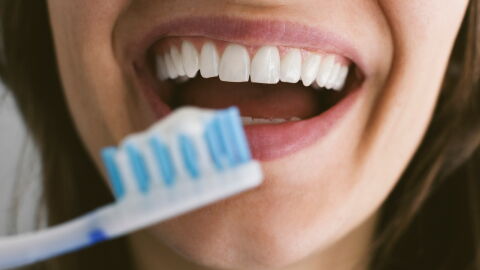There are a lot of theories about what the size of our hands means. Now, new research has found that the length of your fingers could be linked to how sick you will get from Covid.
Discover our latest podcast
Longer fingers, higher levels of testosterone
It is widely recognised that a longer ring finger is an indicator of higher levels of testosterone in the womb. A new study involving Swansea University has investigated the connection between levels of sex hormones in the womb and in puberty and Covid hospitalisations.

The majority of people who catch Covid only experience mild symptoms. The likelihood of needing hospital caredepends on your age and gender. Elderly people and men tend to experience a higher severity than younger people and women.
The research team worked with the Medical University of Lodz in Poland and the Karolinska University Hospital in Sweden to examine digit ratios (ratios of the 2nd, 3rd, 4th and 5th digits) as predictors of severity of Covid-19 symptoms.
'Feminised' fingers, more severe symptoms
The scientists observed that patients with 'feminised' short little fingers compared to their other fingers tend to experience severe Covid-19 symptoms resulting in hospitalisation.
Read more:
⋙ Pfizer: South Africa is throwing thousands of COVID vaccines, this is why
⋙ COVID-19: If you've never had COVID-19, you're likely to have relationship issues
⋙ Tuberculosis: This disease from the past could be making a comeback due to COVID
These initial results have been published in Scientific Reports. Professor John Manning, from the Applied Sports Technology, Exercise and Medicine (A-STEM) research team, said:
Our findings suggest that Covid-19 severity is related to low testosterone and possibly high oestrogen in both men and women.
'Feminised' differences in digit ratios in hospitalised patients supports the view that individuals who have experienced low testosterone and/or high oestrogen are prone to severe expression of Covid-19. This may explain why the most at-risk group is elderly males.
This is significant because if it is possible to identify more precisely who is likely to be prone severe Covid-19, this would help in targeting vaccination.
While the sample for the preliminary study was small, the team's work will continue with an increased sample. And, the findings are still significant, as:
Our research is helping to add to understanding of Covid-19 and may bring us closer to improving the repertoire of anti-viral drugs, helping to shorten hospital stays and reduce mortality rates.















